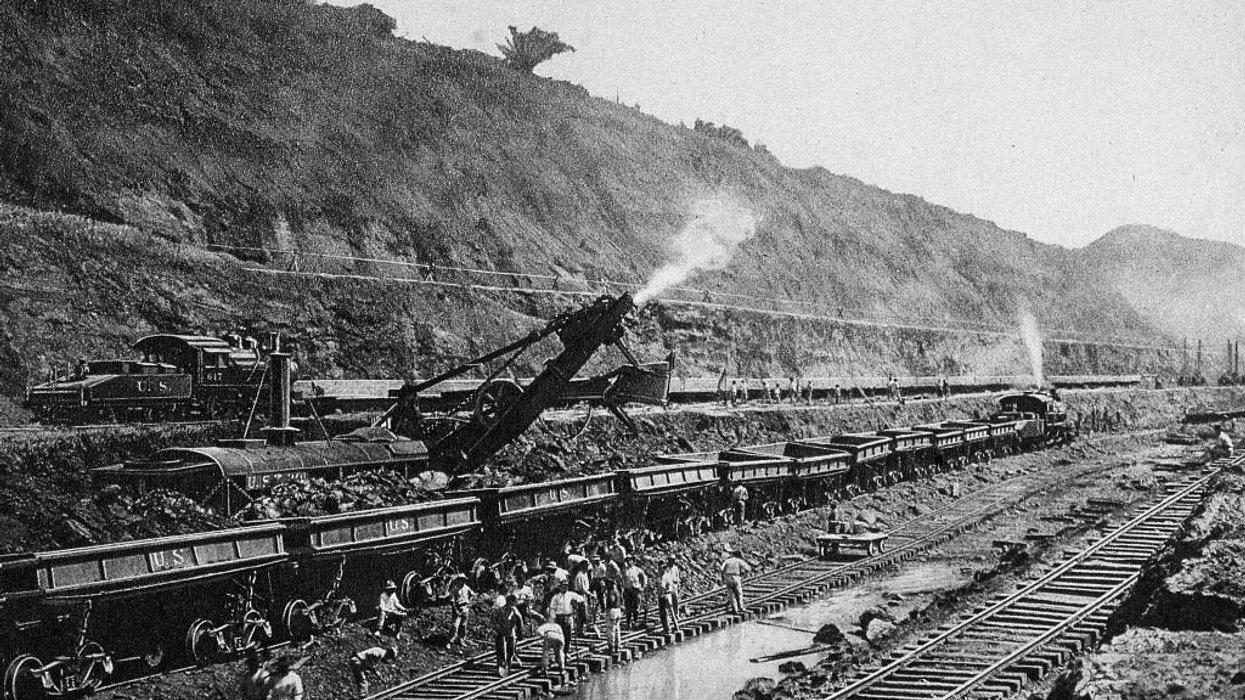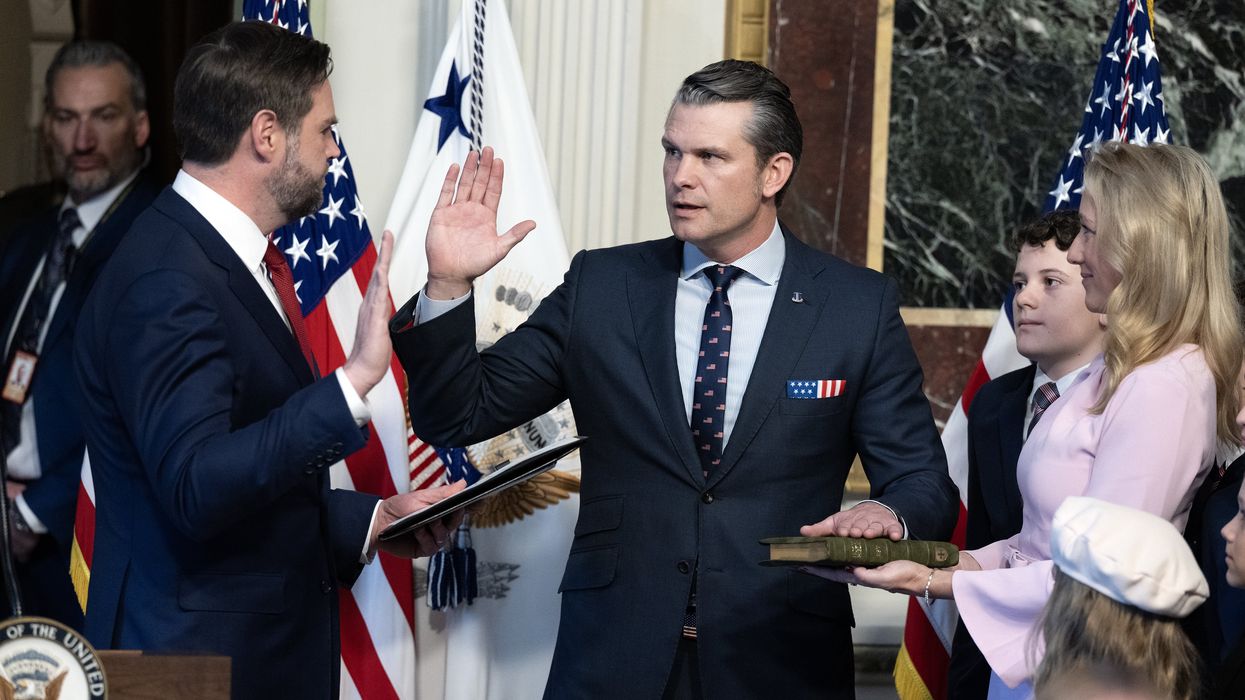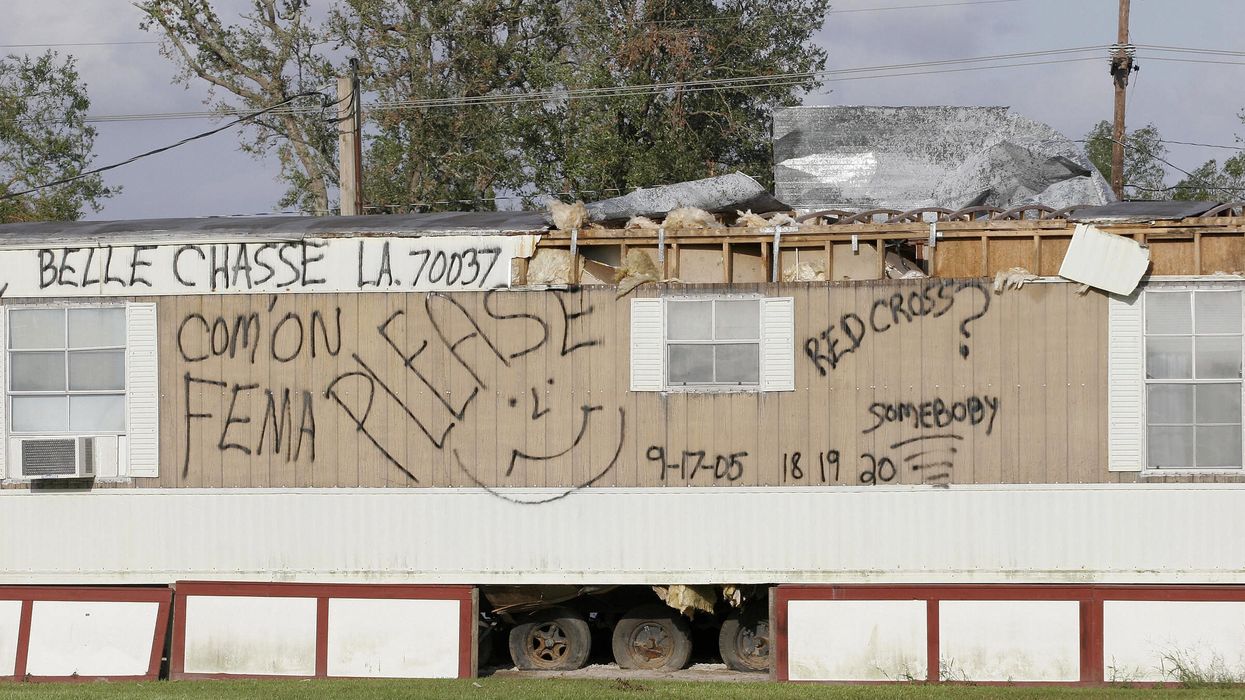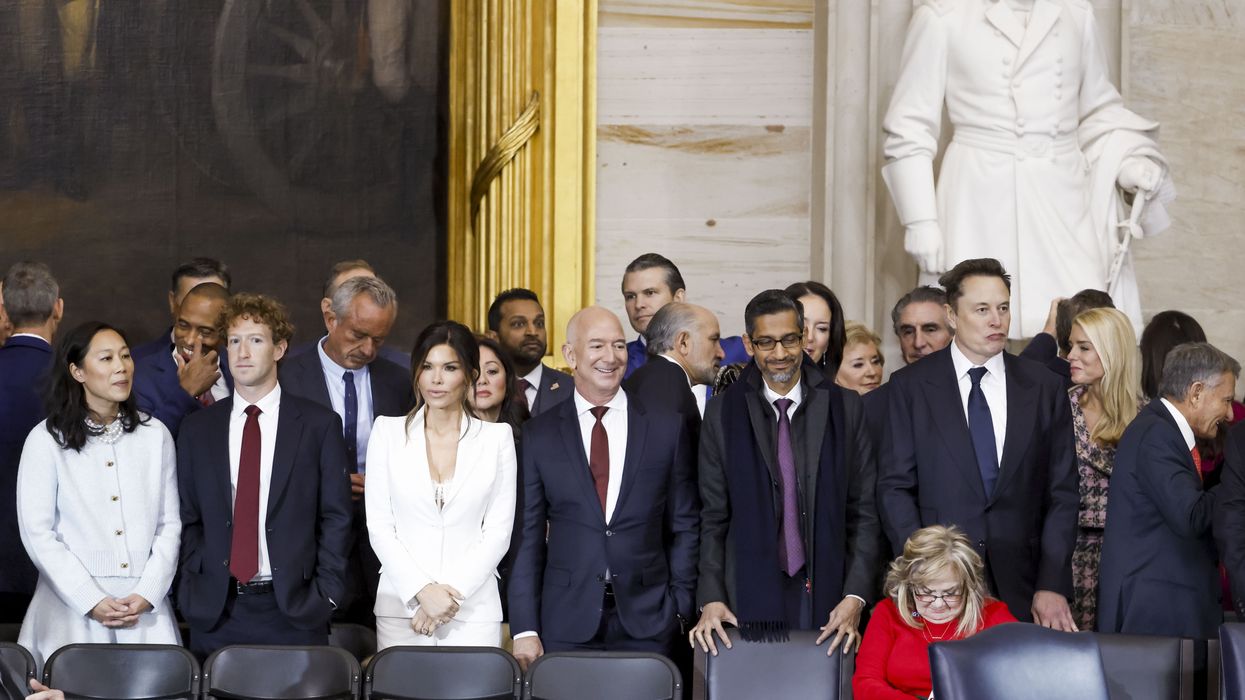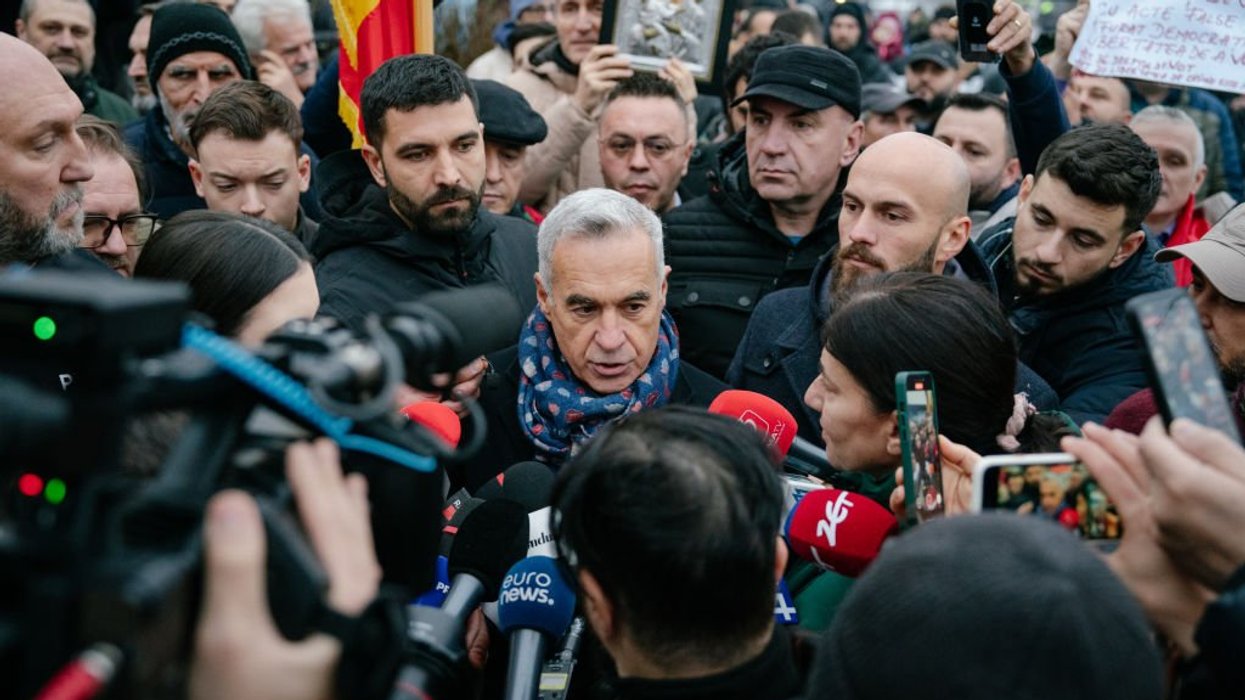GLENN: David Green, founder of Hobby Lobby. Started with $600. Did you borrow $600?
DAVID: Well, yes. We borrowed the money. So we started with nothing, just the loan, took from the bank.
GLENN: Yeah, started with a 600-dollar loan. And you wanted to start making frames in your garage.
DAVID: Correct.
GLENN: And what happened?
DAVID: Well, my family helped -- my wife worked for the first five years for zero, and my two kids glued frames together for 7 cents a piece. And so that was in 1970. But by 1972, we opened up a Hobby Lobby store. The first was 300 square feet, which is about the size of a living room.
GLENN: Did you have any idea what was coming your way?
DAVID: None whatsoever. You know, we just took one day at a time and one brick at a time. I don't know that there was a moment that said, hey, we've made it.
GLENN: Yeah.
DAVID: So it's just been a constant growth for the 40-some-odd years.
GLENN: It's really you and Mr. -- what's the guy's name, who started Walmart? Walton.
Yeah, Sam Walton. It's really you and Sam Walton, who are the -- the big American success stories in brick-and-mortar business that have changed everything in brick and mortar in many ways. And you both had the same value system.
DAVID: Correct. Yes. Our whole value is -- is solid on the basis of the Scriptures, God's word. And so that's what gives us our foundation is just, we go back to that. We really don't think we have any wisdom outside of the wisdom we find in God's word.
GLENN: You wrote -- I think it was -- in reading the book, was it a Post-It note that you wrote to yourself. When things started to go well and you started to worry about, wow, I want to make sure I keep on the right track, you wrote a note to yourself.
DAVID: Well, one of the notes that I have -- and I don't know if that's what you're referring to is one that says, "I own Hobby Lobby, signed God."
GLENN: Yes, that's one.
DAVID: And even today, that's under the glass on mine. And so we know we don't own the business. Not because we say so. It's because God's word says so. He says he owns it all. So we literally believe that we do not own it, that we're only the stewards of what God has given us.
GLENN: So I have been up to Hobby Lobby. And I don't know if you give tours, like you gave to me and my wife. I have seen some incredible things. I've had -- I'm sure you probably have too. Have you been in the Vatican archives? The secret archives?
DAVID: No, we haven't. But we've shown our antiquities a couple times at the Vatican. But we haven't seen their archives.
GLENN: Oh, you -- you -- I've gone in, and you have to get a tour. It is unbelievable.
I will tell you, I've been to the secret archives in the Vatican. I've seen where they -- where they made the new Gregorian calendar. I am just as impressed with what you have in Hobby Lobby, going through and seeing your operation, mainly because I don't know how you've put together so many people that will hold on to the vision. They -- I mean, it is huge warehouse after -- I mean, bigger than football field warehouses, full of people. And it's consistent. And the people are consistent.
How do you do that?
DAVID: You know, we're blessed with an awful lot of great people. Right now, what you're talking about is we have 9 million square feet of warehouses and offices.
GLENN: 9 million.
DAVID: 9 million. And we're building the tenth. So we'll have 10 million after about 18 months.
GLENN: Were you with me, Pat? Did you go through that? Did any of you guys go through that with me?
PAT: Yeah, I was there. Yeah, it was incredible.
GLENN: It was one of the most incredible things I've ever seen.
PAT: Yeah.
GLENN: I can't keep -- I have 80,000 square feet, and I can't keep it in order. I've got 300 employees and I don't know how to keep --
PAT: 9 million. That's incredible.
GLENN: How do you do that?
DAVID: I can't explain it, other than we just have a lot of great people that's in charge of so many different areas. So God has blessed us with a lot of great people.
GLENN: If you were giving -- I'm just using this as a therapy session. We could sell your book. Yeah, yeah, yeah. Whatever. I just want a free therapy session with you.
DAVID: Stay on track. Sell the book.
GLENN: Yeah. I am reading the book because that's the answer I'm looking for. And you are giving answers in this.
Explain how you go from a store in a garage --
DAVID: Uh-huh.
GLENN: -- that's rock solid because it's your familiar.
DAVID: Uh-huh.
GLENN: How many employees do you have now?
DAVID: We have 35,000 employees.
GLENN: How do you go from that -- I go into Hobby Lobby. Literally, I probably have purchased your car.
DAVID: Okay.
GLENN: I go into Hobby Lobby by my house all the time.
DAVID: Thank you.
GLENN: And everybody that works there has the same attitude. They're gracious. They're kind.
How do you keep that going, David?
DAVID: One of the things we do is we bring all the new hires in that are going to be leaders, and we talk to them and spend two days with them. And the key word we use is "serving." No one is being served. We are serving one another. We let our store managers know, we're there to serve them. They're not serving us.
GLENN: You talk in the book a little bit about this. You talk about the replacement for you. When you're looking for a replacement for you, you say there's three things that they have to have. Do you remember what those are?
DAVID: No, I don't. No, I'm sorry.
GLENN: Let me see if I can find them here. Towards the end of the book. You said, you have to have integrity.
DAVID: Okay.
GLENN: The attitude of a servant. And a thorough knowledge of the job.
DAVID: Exactly. Yes. And this is the kind of people that we have and employ. So we have people that -- there's no big. Egos. You know, you can smell ego a mile away. And so they're just a lot of servants. And we try to start that by being a servant ourself at the very top. And so this helps filter right down to the stores.
GLENN: And you -- and you are a servant to the people. You -- you have better health care than -- I mean, you take care of all of the employees.
DAVID: Our minimum wage is $15.70 for our full-time people. We have a clinic to take care of our people on the campus that have over 5,000 people. And we have an MRI machine that saves $1500 for an employee when they need it. So we do everything we can for the family. So if we're strong about family, we need to cough up and do whatever it takes. Like short hours. We're only open 66 hours a week, which is pretty much unheard of. Closed at 8 o'clock and Sundays. So we put a lot of emphasis on the family.
GLENN: You don't know this, but my welcome to Texas -- I was in Jerusalem. And we were moving to Texas. My wife went ahead -- and I was flying in from Jerusalem. And she said, "Welcome to Texas." She sent me a text with a picture of the sign that is in your door right here where -- right by where I live, that said, "We are closed on Sundays, so our employees can celebrate the Sabbath." And that was such culture shock from New York City, that that was my welcome to Texas sign.
DAVID: That's great. That's great.
GLENN: Yeah. You're also -- because you have really made it, unlike most people have made it, you're -- you've really worried about your kids. And you don't have to be -- I mean, you don't have to be a millionaire or -- I think you're probably a billionaire. You don't have to be wealthy like that to have that concern. We all have that concern.
Talk about some of the things that you write in the book about, you know, family and the poison of -- of wealth and the things that, you know -- the entitlement of being a Green.
DAVID: Right. No, this -- this gave me a lot of grief as far as what to do. And we had Christian leaders that would come and tell us to hand it down from one generation to another. But we see Hobby Lobby as a tree, a tree that's owned by God. Here again, not because I say so, but because God's word says so. So then if he owns it, then we're stewards. So we put all of the voting stock into 1 percent of the company, and we formed a trust that's a green stewardship trust. And we are only stewards.
There's no way that we can touch the company. We've all signed off that there's never can be a benefit of the company to us because we do not own it. So we only use the finance to do things that are kingdom -- kingdom ideas, such as the museum in Washington, DC, that we're going to be opening.
So my kids can't inherit anything. We give them opportunity to work, but there's nothing for them, in terms of wealth.
GLENN: David Green is the founder of Hobby Lobby. He has a new book, Giving It All Away and Getting it All Back Again.
I have a friend, Jon Huntsman, who he asked me for a donation to his cancer hospital. And I said, "I will do that, only if you will spend some time with me teaching me how to be charitable. I grew up in a poor family. It's a huge responsibility to have money."
And he smiled and he said, "Oh, I'll make that deal with you. I'll help you give your money away. You bet." And what he said to me was, "The first secret is, you have to care about everything." You know, his big thing is cancer. He said, "But it's about humanity. It's about all of it. You can't just care about the thing that affects you."
If you're teaching somebody how to give it all away, what's your advice?
DAVID: You know, what we do as a family. Because we come together once a month to decide on our giving. We have about 300 requests for finances every month.
And so what we do is we come together, and we try to focus on two things that's eternal. Because there's a lot of temporal things that you can put your money on. But we try to focus on God's word and man's soul. And so these things are the only two things that will last. So we feel good about where we put our money. And that's why we do a lot in terms of the Bible.
GLENN: Do you look at -- I had another friend who was a bishop of a church. And he said -- he spent a lot of time -- he was high up in Goldman Sachs.
And I said, "So tell me about giving. How do you give?" And he said, "Well, it might be my Goldman Sachs background." He said, "But I look at every dollar that I'm giving as an investment in people and an investment in whatever it is I'm trying to do." He said, "Who is going to take that dollar and give the most amount of that dollar directly to what I'm trying to do?"
Do you look at it as investments for God?
DAVID: Yes, I do. Because I think we can do all the things we need to do for humans. Like we feed hungry children. But it's always connected to the gospel. Because only feeding the children is a good thing, but it's not a great thing until you tell them about salvation and eternity.
GLENN: You can say Jesus Christ over here. We're not shy.
DAVID: And so that's -- we drill wells. But we don't drill wells with someone that is not taking it to the other step. Because getting good water is only temporarily. But telling them about eternal life by accepting Jesus Christ as their personal savior is eternal.
GLENN: So I have to tell you this, we -- this audience started something called Operation Underground Railroad. It's -- we're freeing kids in sex slavery and doing some amazing things all around the world. And it's all Christ-based -- centered. And I was just in Bangkok, and a monk that I met who is part of one of the shelters over in Bangkok, when we was opened the shelter, gave him the Scriptures. He was already doing these things. Gave him a copy of the Scriptures.
Just saw him and he said, "Okay. Don't tell any of the other monks or I'll be in trouble," he said, "But I'm a Christian." He said, "I read this book," and he said, "I'm using all these principles in the shelter." He said, "I don't think there's any way to healing without this."
And it was such a profound like lightbulb moment for him that he found this truth that is there.
DAVID: That's exactly right. I like that.
GLENN: Yeah.
DAVID: But you can do all the things that Christ has asked us to do for humans, but you can bring it alongside the death of our savior who died for and paid for our sins. You can pull it all together. And that's what we do.
GLENN: Okay. I want to come back and talk to David Green a little bit about the trouble that he went through with the Obama administration because he would not provide -- what were they saying? Just contraception. And I think it included abortion, did it not? Abortion pills.
DAVID: Yes. There was four drugs that would, we felt, without any question would be abortion. We -- we provided 16 contraceptives, but there was four that we could not do.
GLENN: And, of course, he's a hatemonger. And the family is, of course, against all women, including all the women in the family. And he faced probably one of the greatest battles, I think I've ever seen any business face. Somebody that says -- how many millions a day was it?
DAVID: 1.3 million a day. Because of the number of employees we had, it would have cost 1.3 a day.
GLENN: Okay. So they're fining him $1.3 million a day. Any other company would fold. They stood and took it all the way to the Supreme Court. And it was dicey. Didn't know how it was going to end. He'll tell a little bit of that story coming up in just a second. Again, the name of the book is Giving It All Away and Getting It All Back Again. David Green.
[break]
GLENN: With David Green, the founder of Hobby Lobby and the author of a new book I highly recommend, Giving It All Away and Getting It All Back Again.
When the government hammered you -- and I don't think -- I mean, have you found a case where somebody has been hammered as hard as you were as a company?
DAVID: Well, our principles, I don't think so.
GLENN: Yeah.
DAVID: Because they were just asking me to go completely against my principles.
GLENN: Yeah, they were asking you, pay for abortion or be shut down.
DAVID: Exactly.
GLENN: And they were fining you $1.3 million a day for how many days did that go on?
DAVID: Well, that would go forever. Now, it never got to that point because my insurance policy had not -- it was not completed before I had to go to the new insurance policy. But that's the amount that I would have had to pay, had I not have provided these four drugs that would really cause abortion.
GLENN: Right. So you were -- you sued the government. You took them to court, all the way to the Supreme Court.
Was there a moment at all that anyone around you said, "David, David, let's just -- I'm not saying that we do it, let's just look at this. What does this mean if we lose?"
DAVID: Yes. I had some. Lawyers. Different people that just thought that we probably shouldn't do this.
GLENN: Are they still with you?
DAVID: Not really.
(chuckling)
GLENN: Didn't think so.
DAVID: Actually none of my in-house lawyers. It was more of the out -- things that were not employed with us and knew who we were.
GLENN: And so there was no one who knew who you were that said -- so there was no doubt in the family's mind. Did you have a meeting with the family and say, "I mean, it's God's company. So we're not losing anything. But we could lose God's company on this?"
DAVID: We did bring our family together. I've got ten grandkids. My children, we were all there. Because we wanted to make sure we were united on this. Because we knew the news media would come in and they would just try to rip us apart.
GLENN: Rip you apart.
DAVID: But every one of them, in all the generations, the three generations, we were all united that this was not something that we could do. It was real easy from our standpoint. It was black and white. We either take life or we don't. So this issue is real, real solid and easy for us, that God did not want us to take life.
GLENN: The name of the book is Giving It All Away and Getting It All Back Again. David Green. He'll be joining me for a full hour tonight in The Vault with some pieces from the Bible Museum. More in a minute.
[break]
GLENN: We're with David Green. Giving It All Away and Getting It All Back Again.
This is the company -- his family runs Hobby Lobby and is -- is just this remarkable -- just truly remarkable family. Started with a loan of $600 back in the '70s. And now, you know, it's worth billions of dollars. And -- and they've done some remarkable things. They're going to open up the Bible Museum in Washington, DC. We'll get to that here in a second.
But you also took a stand against the Obama administration. And you were absolutely fearless.
Can you share one story with us that was either the high or the low of that? That whole ordeal. What do you take away?
When I say that, what comes to mind about that time period in your family's life?
DAVID: You know, I think the thing that came to mind at first was when we first knew that we were going to have pay for these drugs that would create abortion. I think there was no question about it, I lost a lot of sleep. Because my first thought was, you know, we can lose this company. Because we are going to take a stand. It's right to take a stand, regardless of what you lose. And we knew that that was the case.
GLENN: A lot of people would say -- now, this one is so extreme -- I mean, we've talked about this a lot.
I don't understand how the pro-choice people can say that we're awful people because we truly believe it's a baby. And if you truly believe it's a baby, then you automatically believe it's murder. And how could you not say something about that?
But you know that there are people in all walks of life that face something like this. Maybe not this extreme. That somebody will convince them or they'll even convince themselves, yeah, but if I lose it, then I have nothing and I won't be able to make any impact. I need to -- I need to be able to make an impact. So I'll compromise on this to be able to get that.
DAVID: Yeah, I just don't think there's ever a right time to do a wrong thing. And so this is what we decided. We were 100 percent sure that this was the wrong thing to do. And so we rested in that.
And the other thing that I think that I have to mention is we had so many that were praying for us. And it was their prayers that after the first initial thought that we were going to have to pay $1.3 million a day -- that left. And we were basically -- my wife and I were at total peace because we made the right decision. And whatever it be, it be. Because we had already given the company to God. We're not the owners, and we don't accept ourselves as the owners.
STU: What about the argument -- because we hear this a lot from people who go to Washington.
JEFFY: We sure do.
STU: You're doing so much good as a company. Here you are. You're a great pillar of the community all over the country. And if you don't -- maybe you should just give on this one issue because if you don't, you're going to ruin all the good that you're doing.
DAVID: I think it's when -- God blesses us when we pass the test. This was a test.
GLENN: I agree.
DAVID: And when you don't pass the test, that's when you don't have God's blessings. And so God knows if you're going to pass the test -- we all come to him every day. We have to pass the test, and this is one of -- of many tests. We've had tests about alcohol and subleasing a store to someone that was going to distribute alcohol. And we passed it up and paid another ten years on a lease. But that was a test. And I think when we pass those -- not that we do all the time. Hopefully we do, then I think that's when you see God's blessing in a country, in a family, in a business.
GLENN: It's the story of tithing. I mean, it's the story of your book. Giving It All Away and Getting It All Back Again. You pay your last dollar for tithing over food. And it -- you -- you will get it back. You will get it back. And then some.
It requires -- it's -- it's wonderful the way God works. God requires you to do your own homework and then have faith. And when you have faith, he'll give you more. And you'll grow bigger and you'll have more knowledge. And it will require more faith.
And then you're off to the races.
DAVID: Yes. When we tithe, the Bible just tells us, the windows of heaven will open up. And try me and see. So it seems like that if you don't, you don't believe in God's word. But we do believe God's word, when he says we don't own the company or that he's going to open the windows of heaven when you pay your tithes.
And then it also says, I do believe this book. And that's another test. Whether you pay tithes or not is one of the other tests.
GLENN: So, David, you started with your sons. Your son was making seven cents a frame when you started.
DAVID: Seven and 9-year-olds.
GLENN: Seven and 9-year-olds. They were there from the beginning of Hobby Lobby.
DAVID: Uh-huh.
GLENN: Your son -- does Steve -- he runs Hobby Lobby now, or is he running --
DAVID: I'm the CEO. He's the president. But he spends 20 percent of his time there. The other 80 percent, he's trying to get curriculum to put back into schools.
GLENN: Which is fantastic.
DAVID: We're going to try to put the Bible back in the school. We're working with ADF to make sure it's done in such a way that it can stay in there.
GLENN: Right.
DAVID: And then the other time is building the museum.
GLENN: And so are you doing most of your time at Hobby Lobby?
DAVID: I'm doing 97 percent of my time.
GLENN: Okay. At Hobby Lobby.
DAVID: The other 3 percent, I'm sitting here with you.
GLENN: What is your -- what is your son good at? Where has your son passed me as a man?
DAVID: Actually both of my sons are in ministry. Both of them are almost full-time, relative to the Bible. Their work is relative to the Bible. So God has taken them away from the business.
I have 35,000 employees. It doesn't have to be my family. It's God's -- it's -- it's a ministry. And we just want the very best person from it.
But it's pretty obvious my two sons will not be the one that replace me because they're doing things that's much more important.
GLENN: How -- how do you live in a world -- I try to make the case all the time that by taking care of your employees -- in fact, like you are, 15 percent. Or 15-dollar minimum wage. That's what, you know, the people at McDonald's are screaming for. Fifteen-dollar minimum wage. Et cetera, et cetera.
I keep making the case that when it comes to capitalism -- true capitalism, the more you help the workers that you have, the more you take care of them, the MRI machine. You know, I want -- you know, we're not big enough now. But when -- when and if God allows us to be big enough, I want to put medical health care here because the insurance we have is horrible and it's the best I can do.
But that helps me as a business too. Right now, capitalism is viewed and in many cases, it is -- it's executed as a dog-eat-dog, I will take it, I get it from you, it's mine, I hoard it, I stomp on other people. I have a -- I have some HR people we've just hired who when I told them about how I look at the company and how insurance, when we were interviewing them, they said, "Oh, my gosh, please, let us work here." Because they had said -- they had just gotten out of board meetings where the board of directors said, "Don't those people have like that Obama thing?" They were so far removed from the people, they were just like, dump them into the government system.
That's the worst thing you can do as a capitalist.
DAVID: Yeah. I think we have to here, again, go back to the word serve. I think this is what Christ would have us to do. He paid all. And somehow or another, we should have care for our people. And we need -- that should be our first motivation because it's just within our hearts to give and to be generous with what we have. But secondly, it's good for business. We found it's very good for business to care about our people.
GLENN: So explain that. Because I know you talk about that in the book. But explain this now in a way that a non-Christian -- somebody who is not rooted daily in the Bible and doesn't look at their business that way, explain this in the business world, how that pays off.
DAVID: It's still a great principle. The principles in the Bible are still good. Believe it or not.
GLENN: Right.
DAVID: You don't have to be a believer for this thing to work.
GLENN: Right.
DAVID: It just works that you care about people, then they're going to care about you. But you have to be true in it. You can't say one thing and do another.
I mean, the fact that we're closed most Sundays, 8 o'clock at night, only open 66 hours, says we're not just speaking it. We're doing it. We're telling them we care about you.
GLENN: We're telling you that we close as 8 o'clock, because at 8 o'clock, every mom and every father should be home with their family.
DAVID: Exactly. If I can have them -- and I'm telling them that their family is more important than Hobby Lobby. We tell them that. We want that to be in their hearts.
So if you're a non-believer, that still works. That if you care about your people -- and sometimes it -- that love comes from Christ, that you have for other people. Where do you get that? I'm not sure how strong that is if you don't know God's love for you. He paid his life for you.
And that same love as a Christian should extend to other people. And I care about your family. Well, what can I do for your family? I can pay you more. I can start you out more. Those are the things that come back to pay dividends.
GLENN: And in a society where everything is expected and everything is like, of course, you're going to do that, you should do that, you're rich, you should give that to me. I should have what you have -- how do you keep that balance of -- of giving and gratitude on both sides? How do you teach the employee to be a servant as well?
DAVID: I'm not really sure we do that real well. I'm working for that in my own life.
GLENN: Right.
DAVID: To have gratitude for what God has done. And I'm not really sure we do that. But hopefully, they can see our lives at the corporate office and what we're trying to do then. And hopefully, they will grab on to that idea.
GLENN: Quickly, I know that we're going to be filming something in The Vault today. I just got word that it's not going to air today. It's going to air in a couple of weeks.
But tell me about the Bible Museum, something you guys have been working on for years and opens in November.
DAVID: We're very excited about this book, as you can -- as you can well understand after our discussion today.
And we think it needs to be planted right there in Washington to see the seat of government.
GLENN: Right.
DAVID: This is where we came from. There's going to be a fly-through there, where you're going to be standing there and you're going to be -- actually think you're in an airplane. You know, because we're going to fly around and show you all the different Scriptures on all the different monuments -- monuments to show you where we came from.
GLENN: It's so important. Nobody believes it anymore.
DAVID: Yeah. But we're going to show you where we came from, just -- by this fly-through.
It's going to be three floors. One of them is going to be the history of this book, and the next one is going to be the story. This is the story from the beginning to the end.
GLENN: So great.
DAVID: It's a story. Not stories.
GLENN: And you have some of the best people in museums and in -- I mean, I almost want to say almost like Imagineering. The Disney Imagineering. You have some of the best storytellers on the planet.
DAVID: It is going to be very high-tech, and there's going to be things in there that could go exceed Disney in some areas.
And then the third floor is going to be the impact that this Bible has had. So those are the three floors. But there's going to be a lot of others. Banquet halls. Theaters. Things of that nature. So it's about a billion dollar project that we will have ready to go November the 17th.
GLENN: Unbelievable. David Green, the name of the book is Give It All Away and Get It -- and Getting It -- Getting It All Back Again. Giving It All Away and Getting It Back Again. Thank you. It's so good to you.
DAVID: You're welcome.
GLENN: Thank you.

